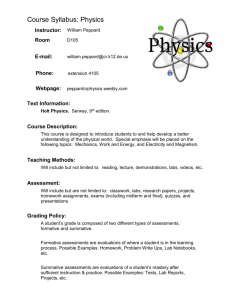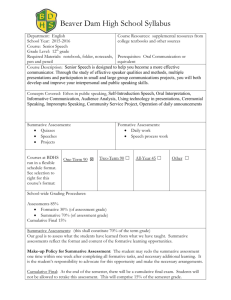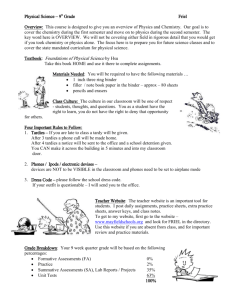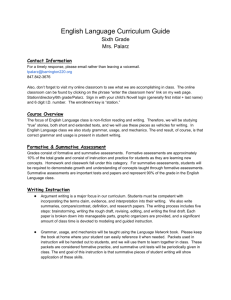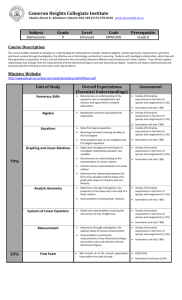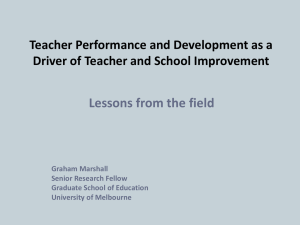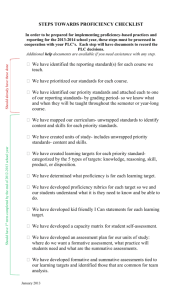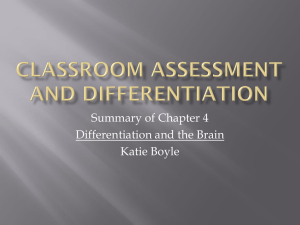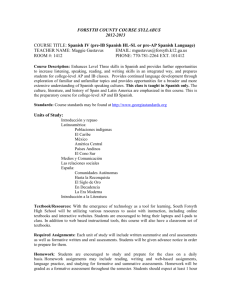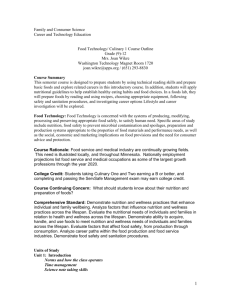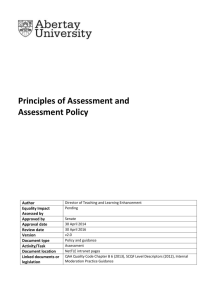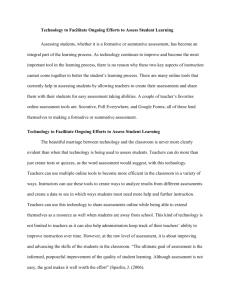7th Syllabi - St. Jerome Catholic School
advertisement
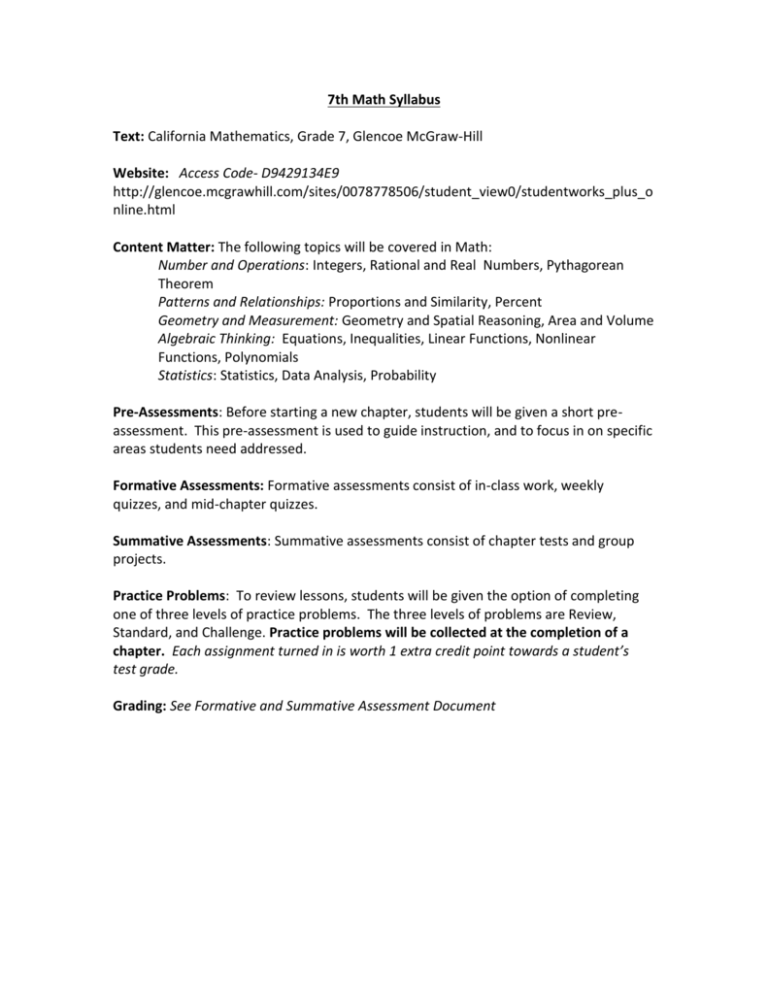
7th Math Syllabus Text: California Mathematics, Grade 7, Glencoe McGraw-Hill Website: Access Code- D9429134E9 http://glencoe.mcgrawhill.com/sites/0078778506/student_view0/studentworks_plus_o nline.html Content Matter: The following topics will be covered in Math: Number and Operations: Integers, Rational and Real Numbers, Pythagorean Theorem Patterns and Relationships: Proportions and Similarity, Percent Geometry and Measurement: Geometry and Spatial Reasoning, Area and Volume Algebraic Thinking: Equations, Inequalities, Linear Functions, Nonlinear Functions, Polynomials Statistics: Statistics, Data Analysis, Probability Pre-Assessments: Before starting a new chapter, students will be given a short preassessment. This pre-assessment is used to guide instruction, and to focus in on specific areas students need addressed. Formative Assessments: Formative assessments consist of in-class work, weekly quizzes, and mid-chapter quizzes. Summative Assessments: Summative assessments consist of chapter tests and group projects. Practice Problems: To review lessons, students will be given the option of completing one of three levels of practice problems. The three levels of problems are Review, Standard, and Challenge. Practice problems will be collected at the completion of a chapter. Each assignment turned in is worth 1 extra credit point towards a student’s test grade. Grading: See Formative and Summative Assessment Document 7th Science Syllabus Text: Focus on Life Science, California Edition, Prentice Hall Website: http://www.phschool.com/webcodes10/index.cfm?fuseaction=home.gotoWebCode&w cprefix=cvk&wcsuffix=9999 Content Matter: The following topics will be covered in Science: Looking at Cells: Overview of Life Science, Light, Cell Structure and Function, and Cell Processes and Energy Genetics and Evolution: Genetics, Evolution, Earth’s History Structure and Function in Living Systems: Viruses, Bacteria, Protists, and Fungi, and Structure and Function of Plants, Invertebrates, and Vertebrates Structure and Function in the Human Body: Bones and Muscles, Circulation and Respiration, the Nervous and Endocrine System, and Reproduction Labs: We will complete a variety of labs this year. Labs will coincide with the material covered in each chapter. After a lab is finished students will complete a lab writeup. Students will follow the Scientific Method to complete these labs. Lab write-ups are due two days after a lab is completed. Formative Assessments: Formative assessments consist of in-class individual and group work, reading of articles, and quizzes. Summative Assessments: Summative assessments are assigned after a chapter is completed. Students have 2 weeks to work on this. Examples of assessments are written reports, class demonstrations, presentations, creation of models or visuals, and interactive lessons. Science Fair: The purpose of the Science Fair is for students to explore a scientific topic and practice using the scientific method. The Science Fair will be held on Thursday, January 23. Students will display their projects for the school community to see. These projects will be judged, and three winners from 7th and 8th grade will continue onto the Diocesan Science Fair. The categories to choose from are: Behavioral and Social Sciences, Biological Sciences, Math and Computer Sciences, Physical Sciences, Engineering and Computer Applications, and Environmental Sciences. More information will be given to students in mid-September. Grading: See Formative and Summative Assessment Document 7th Religion Syllabus Text 1: We Live our Faith: As Disciples of Jesus, Sadlier Content Matter: The following subjects will be covered in Religion: Who is God? Who is Jesus? How is Jesus Christ Alive in the Church? How does the Church Live as the Body of Christ? Text 2: Family Life, RCL Benziger Content Matter: The following subjects will be covered in Family Life (more info to come in September) God’s Gift of Family God’s Gift of Self God’s Gift of Life God’s Gift of Love God’s Gift of Community Prayer: Students have the opportunity to lead the class in prayer. Students choose a theme and represent that with a poem, short story, video clip, or song, and end with a prayer. Students need to discuss topics with me the day before they lead prayer. Reflections: Each night, students will be promoted with a question to answer in their Religion notebook. They should spend 10 minutes writing. They can write about the text, class discussions, or personal insight. Reflections will be collected at the end of each chapter. Reflections are worth 10 points each. Do not wait until the end of the chapter to write your reflections :). Summative Assessments: Students will complete small individual or group projects at the end of each chapter. Examples of assessments are group skits, art projects, written summaries, posters, etc. Schedule: Seventh grade will spend part of Religion class on Monday’s discussing our Family Life Curriculum. We will use Friday’s Religion class to read and discuss Visions. This is a Catholic youth magazine that addresses contemporary issues. Grading: See Formative and Summative Assessment Document
